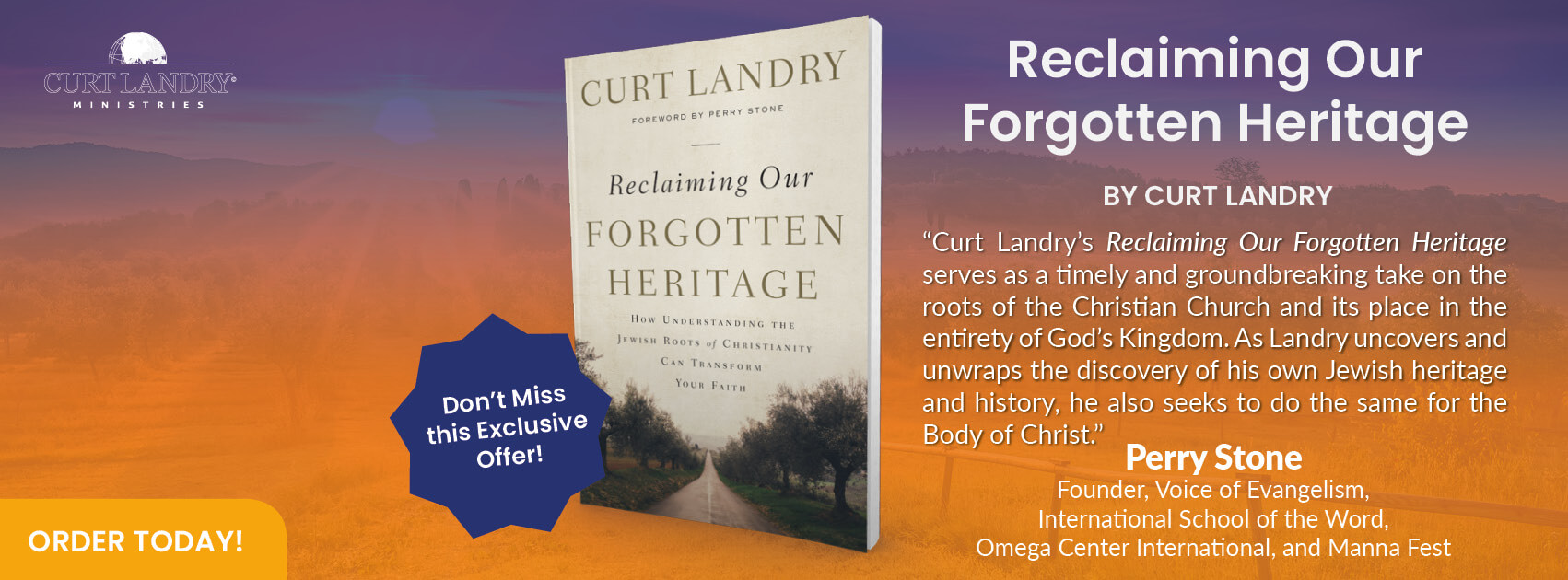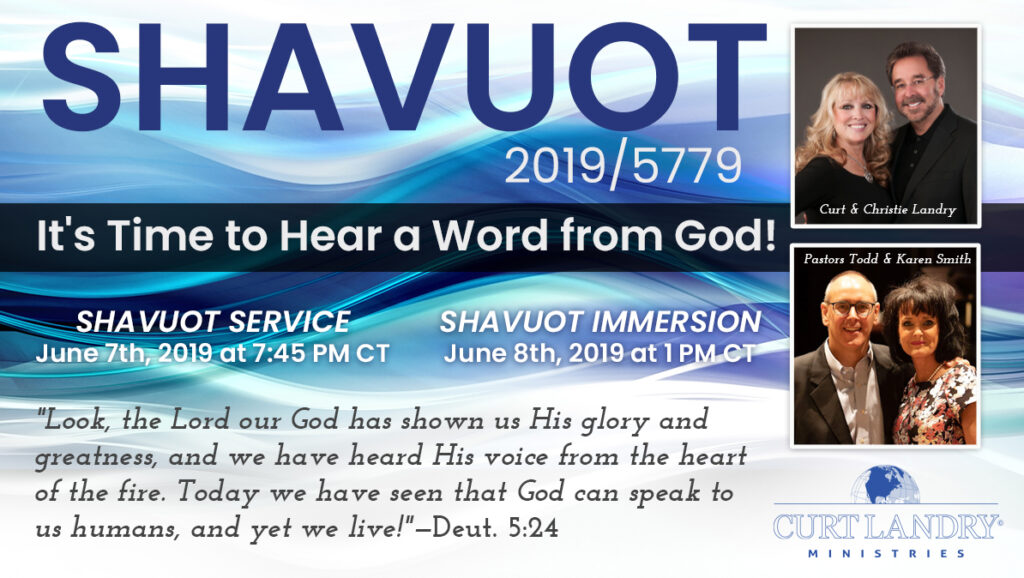Shavuot: Entreat Me Not to Leave You
Why Is Ruth Read during Shavuot?
There are two main reasons why Ruth is so commonly read during Shavuot. One, because the ‘climax’ of Ruth’s journey occurs during Shavuot; and two, because of Ruth’s love and acceptance of God’s laws.
In much of Israel’s past there existed a series of highs and lows in their faithfulness to God and His laws…
Because of this, today, despite Shavuot in many ways being a celebration of harvest and new beginnings, the laws of God are read, studied, and generally celebrated. They are read as a beautiful gift from God!
Since Ruth, whose story already occurs during Shavuot, was so faithful to the laws of God—despite being a woman from Moab who originally served another god—reading Ruth’s journey is only fitting.
And the lessons of Ruth hardly stop there! For the New Testament shows many parallels in Ruth’s journey to future events of a certain man from Bethlehem.
Entreat Me Not to Leave You…
Ruth is one of the shortest books of the Word, containing four brief chapters, yet, within those chapters lie a river of insights.
Naomi, her husband, and sons—Mahlon and Chilion—traveled from Bethlehem to Moab during a drought. This may have seemed a simple decision, but in many respects the family suffered for it. For they not only left their people in a time of trouble, but, in many ways, became complacent in Moab—not wholly maintaining their relationship with God and allowing mixture into their lives.
Yet, even after her husband and two sons died, leaving Naomi, Ruth, and Orpah widowed, God kept Naomi. Further still, God was going to bring redemption in her desperate return to Bethlehem. Redemption largely made possible through the faithfulness of Ruth…
When Naomi, seeing no future for herself, alone, in a foreign land, decided to return to Bethlehem, her two daughters-in-law were prepared to follow her…
While this speaks well of both, Naomi—likely unconsciously—gave them a test. She entreated them to return to their old families, their old ways, and even, their old god.
Orpah, out of loyalty and remembrance of her dead husband, wanted to follow Naomi, but the old ways, the easiness of them, won out with the readiness of Naomi’s entreaties. Just as our own faith and ways can be tested and found wanting if our roots in God are not deep enough…
However, Ruth was determined. She clung to Naomi even after Orpah decided to follow her entreaties.
Ruth would not leave Naomi, but, further still, she would not leave her God. She was willing to take the narrow path of poverty, uncertainty, and living in a land where she may not be wholly welcomed. A virtual “valley of the shadow of death.” (see Psalm 23:4)
Ruth responded to Naomi’s entreaties, and in that journey, her faith in God was truly made manifest…
…Ruth said:
‘Entreat me not to leave you,
or to turn back from following after you;
for wherever you go, I will go;
and wherever you lodge, I will lodge;
your people shall be my people,
and your God, my God.
Where you die, I will die,
and there will I be buried.
The Lord do so to me, and more also,
if anything but death parts you and me.’”—Ruth 1:16-17
This response is believed to be Ruth’s conversion, yet, it was also the catalyst to her destiny—though there would be many tests and trials before she could fulfill it…
Upon arriving in Bethlehem, Naomi and Ruth were met with the full impact of poverty. They had virtually nothing. Yes, Naomi had property there, but ten years of absence had left it derelict; with no harvest or expectation of assistance.
Only gleaning behind the reapers of the harvest—taking the seed that falls unbidden and unremembered to the ground—was an option for them. Further still, Naomi was an old woman, not truly able to glean. Thus, Ruth, in her love for Naomi, had to do the work of two in what was already a hard existence.
However, it was this very love and faithfulness that brought Ruth to the field of the man who would help fulfill her destiny.
Further still, her time of gleaning prepared her for the fulfillment of her destiny. It removed from her any pride she may have had left from her bountiful life in Moab—as she is believed to have been a high-ranking Moabitess. It made her humble; assured her willingness to listen to God and Naomi; and put her in the path of honor, and of course, Boaz.
Ruth’s kindness to her mother-in-law, her character, were well-known in Bethlehem despite the short period of time they had been there… and indeed, it made those around her take notice. Particularly Boaz, who, knowing her kindness to Naomi—his kinswoman—held Ruth in high regard, giving her favor and blessings even in her time of preparation.
“…Boaz… said to her, ‘It has been fully reported to me, all that you have done for your mother-in-law since the death of your husband, and how you have left your father and your mother and the land of your birth, and have come to a people whom you did not know before. The Lord repay your work, and a full reward be given you by the Lord God of Israel, under whose wings you have come for refuge.’”—Ruth 2:11-12
Ruth was given food, protection, ease in her work, and kindness from Boaz, despite her past, despite her not being a Jew, and even despite her only being a new follower of the I AM.
Yet, the test of the field would not be Ruth’s last, nor easiest—Naomi would give the hardest test of all…
Ruth, a woman of honor, who found no shame in gleaning for food, would surely have had reason to believe Naomi’s request beyond even her love for her.
Yet, Ruth, even upon hearing the potentially dishonorable request, agreed to do ALL Naomi asked…
“Then Naomi… said to her, ‘My daughter, shall I not seek security for you, that it may be well with you? Now Boaz… is he not our relative? In fact, he is winnowing barley tonight at the threshing floor. Therefore wash… and anoint yourself, put on your best garment and go down to the threshing floor; but do not make yourself known to the man until he has finished eating and drinking. Then it shall be, when he lies down, that you shall notice the place where he lies; and you shall go in, uncover his feet, and lie down; and he will tell you what you should do.’
“And she said… ‘All that you say to me I will do.’”—Ruth 3:1-5
The thoughts of anyone who knew of Ruth’s going to Boaz at night, alone, and after he had been drinking, may not have been honorable. Yet, Naomi knew the honor of both Ruth and Boaz. She understood that, despite Boaz not being the closest kinsman, that his goodness and kindness would fit well with Ruth.
Naomi knew that even if he sought out the closer relative first, that Boaz would gladly marry Ruth when the other—almost certainly—refused.
Ruth’s obedience brought her and Naomi instantly out of poverty and into REDEMPTION. Redemption that would continue through the generations to the King of kings; the Son of God… Jesus.
For God chose the lineage of Ruth and Boaz to be in the lineage of Jesus. That the story of redemption found in the book of Ruth, in the land of Bethlehem during a time of harvest, might be echoed generations later in our God.
Yes, Jesus, like Boaz, would be born in Bethlehem and become our kinsman redeemer. Restoring all that had been lost and stolen. Bringing in a harvest of souls!
As we enter into Shavuot, preparing our hearts for the harvest of our new beginning, it is important to remember the redemption of the season. That we, having been redeemed, might come forward to bring in the harvest. To further the Kingdom of God.
It is time for new beginnings; and while trials may come, they are not always evil. Sometimes they are merely times of testing to put our hearts and selves into positioning for blessings and destinies beyond our greatest imaginings!

